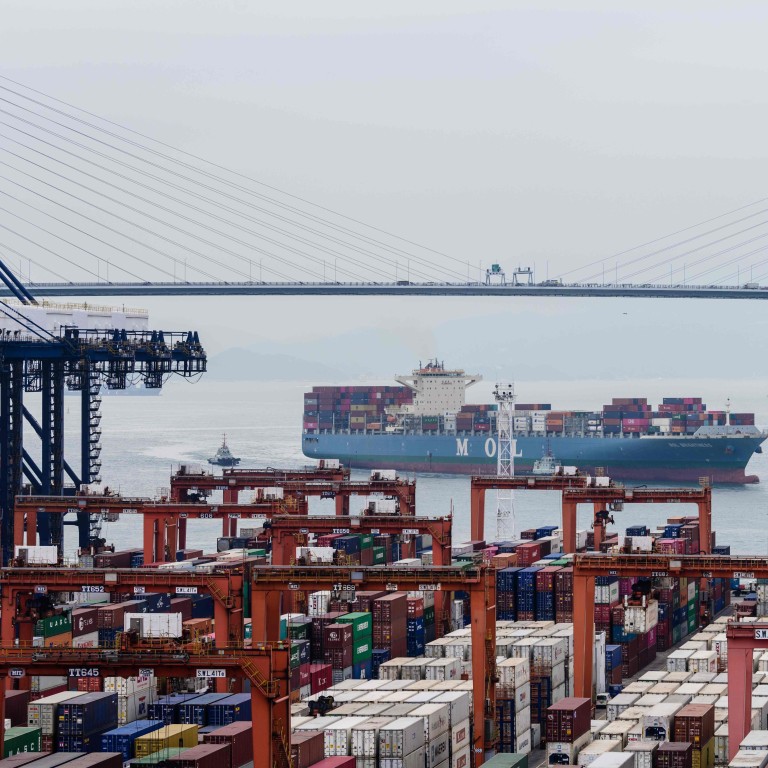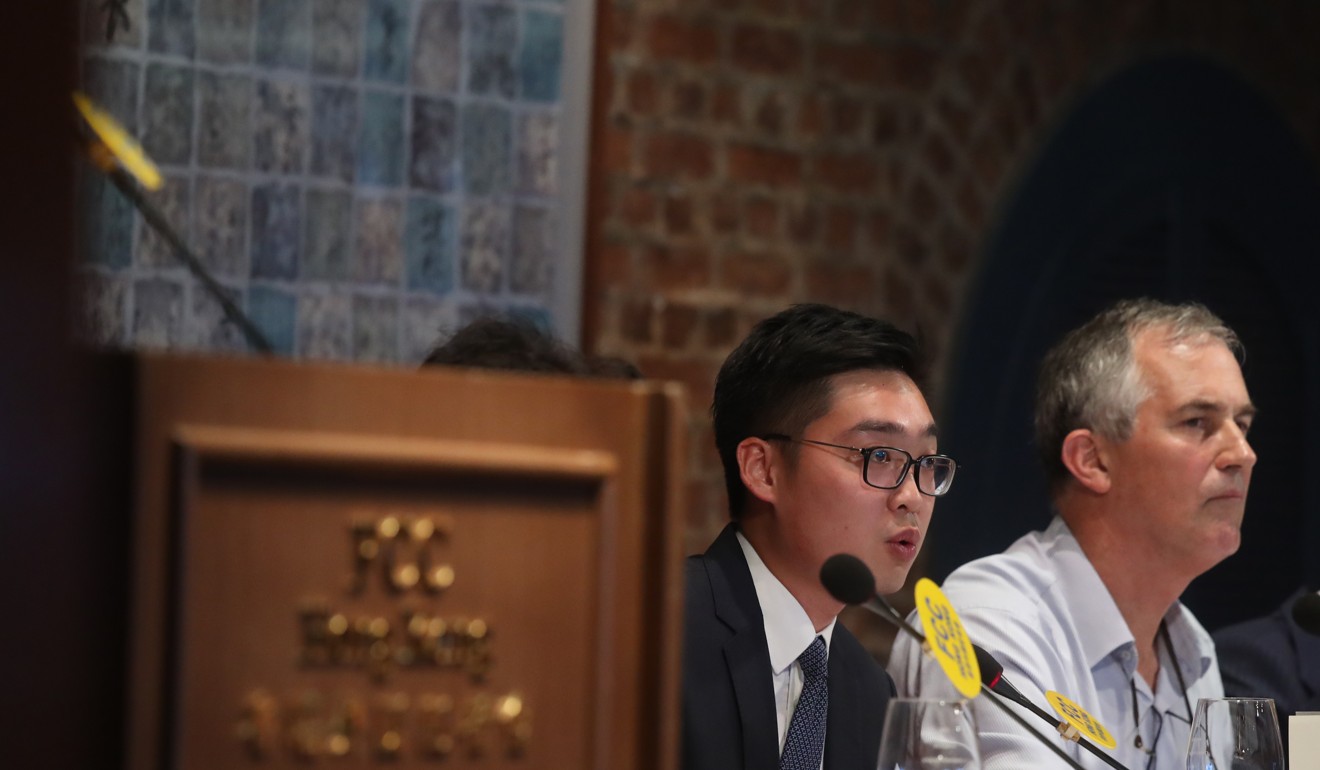
US voices concern over Beijing’s ‘increased intervention’ in Hong Kong, but will maintain special trading status
- Washington decision outlined in 2019 Hong Kong Policy Act Report
- Act has given Hong Kong special status to be treated separately from mainland China on matters of trade and economic policy since 1992
The United States has decided to carry on treating Hong Kong separately from the rest of China as a special trading partner, although it raised concerns the city’s autonomy has been “diminished” by what it characterised as increasing interference from Beijing.
In the latest report published on Thursday, Washington noted Beijing had taken a number of steps that appeared inconsistent with its commitment to allow Hong Kong to exercise a high degree of autonomy, as enshrined in the Basic Law, the city’s mini-constitution and the Sino-British Joint Declaration.
But the paper has drawn the ire of Beijing, with the Office of the Chinese Foreign Ministry Commissioner in Hong Kong saying it stood firmly against US interference in local affairs through the “so-called report”.
The report stated: “The tempo of mainland central government intervention in Hong Kong affairs – and actions by the Hong Kong government consistent with mainland direction – increased, accelerating negative trends seen in previous periods.

“As a general matter, Hong Kong maintains a sufficient – although diminished – degree of autonomy under the ‘one country, two systems’ framework to justify continued special treatment by the United States for bilateral agreements and programmes per the Act.”
The US-Hong Kong Policy Act has given the city a special status to be treated separately from mainland China on matters of trade and economic policy since 1992.
But it also empowered the US president to revoke the policy should the city be deemed to be “not sufficiently autonomous”.
Past reports, including from last year, have concluded that Hong Kong’s high degree of autonomy was sufficient or “more than sufficient” to justify the special status. However, the US has hinted at having reservations by adding qualifiers such as, Hong Kong “generally” enjoyed a high degree of autonomy, or “in most areas” since 2017.
US-China trade war could slash US$1 trillion from US economy
The plan, which the administration aimed to approve by July, was denounced by the pro-democracy bloc and business sector, including the American Chamber of Commerce, which warned it would sabotage the city’s safe reputation for business.
Last year’s report noted that Hong Kong’s leader, Carrie Lam Cheng Yuet-ngor, had turned down an extradition request from the US for the first time since 1997, and released the suspect to mainland authorities for a separate criminal trial across the border.
The latest report said mainland China had still not provided information on that case, but did say Hong Kong had assisted with two other extradition cases to the US.
Later on Thursday, the Office of the Chinese Foreign Ministry Commissioner slammed the US for making unwarranted comments on Beijing’s policies over Hong Kong. It also said the report made groundless accusations against the “legitimate and lawful measures” taken by the city administration against separatist forces.
“We urge the US to stop viewing one country, two systems in a selective manner through coloured lenses,” its spokesman said.
We urge the US to stop viewing one country, two systems in a selective manner through coloured lenses
A Hong Kong government spokesman said the one country, two systems principle had been “fully and successfully implemented” since the city’s return to Chinese rule in 1997.
But he emphasised any suggestion of Hong Kong independence would be a blatant violation of the Basic Law, adding authorities had handled the various incidents raised in the report, including the party ban on HKNP, in accordance with policy.
Meanwhile, Civic Party leader Alvin Yeung Ngok-kiu said the government should not ignore the US warning and assume Washington would maintain the city’s special status for good.
“The Hong Kong government should reflect on whether its policies and actions over the past years have violated the one country, two systems principle,” he said.
Lawmaker Holden Chow Ho-ding of the Democratic Alliance for the Betterment and Progress of Hong Kong welcomed the US decision on the city’s status, but said the accusations it made against Beijing were inaccurate.



